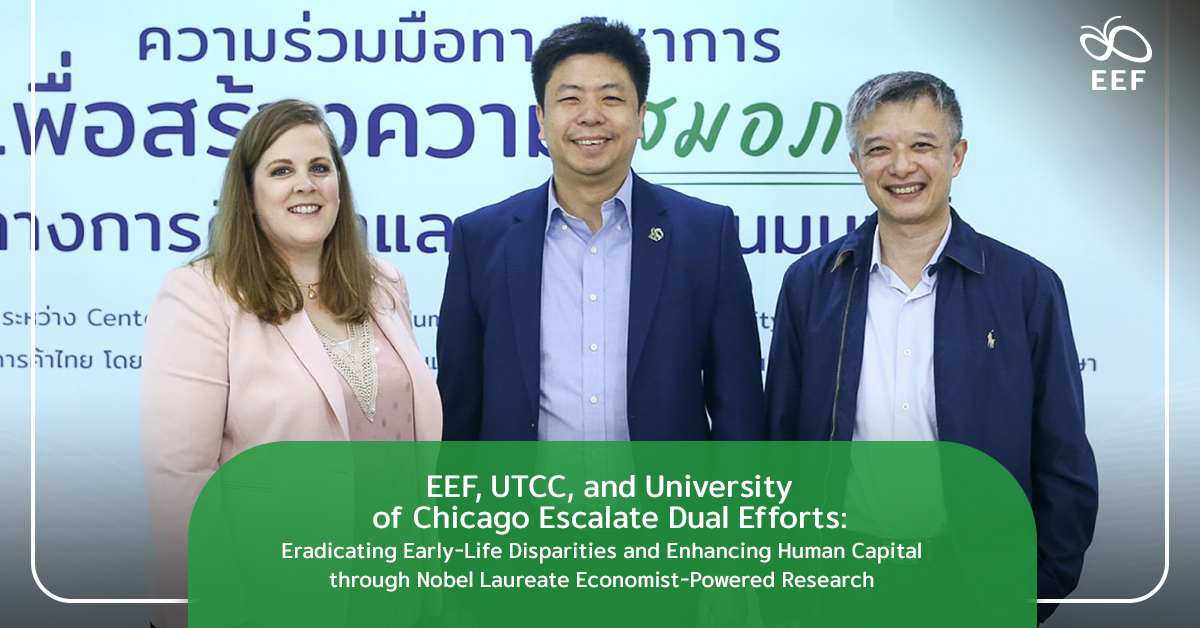
A landmark academic collaboration was kicked off to advance educational equity and human capital development in Thailand. Uniting their expertise for this ambitious endeavor are three leading institutions — the Equitable Education Fund (EEF) Thailand, the University of the Thai Chamber of Commerce (UTCC), and the Center for Economics of Human Development, University of Chicago, spearheaded by Nobel Laureate economist Professor James J. Heckman. The partnership seeks to develop and implement the most effective policy tools and proposals, spanning from early childhood to career development, ensuring that every child in Thailand has the opportunity to succeed in life. By leveraging cutting-edge research and innovative practices, this collaboration aims to bridge educational gaps and cultivate a robust, skilled workforce, poised to drive the country’s future growth.
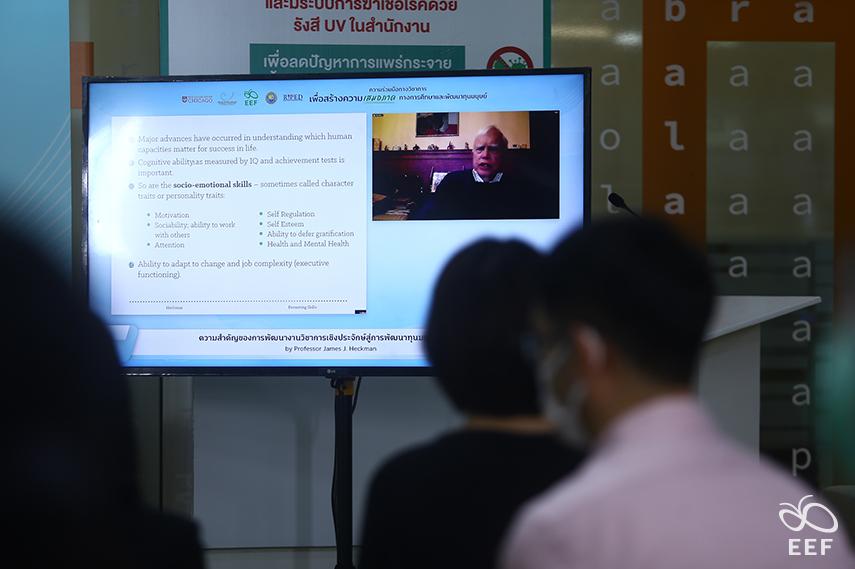
Thailand has been grappling with significant challenges in its development as a fully-fledged aged society, compounded by a declining birth rate of nearly 500,000 births per year. Signaling this urgency is data from 2023, which revealed that 317,024 children aged 3-5 years had not received adequate development. For the country to advance through human capital development, it cannot afford to overlook this substantial number of young children lacking proper growth opportunities.
A critical aspect of early childhood development, extensively discussed both in Thailand and internationally, is caregiving, with a particular emphasis on the crucial role of families in promoting development through appropriate and timely caregiving practices. This highlights the เเimperative to establish policies and measures that enhance early childhood caregiving, especially for economically disadvantaged families, skipped-generation families, and those facing various challenges, underscoring the need for comprehensive support.
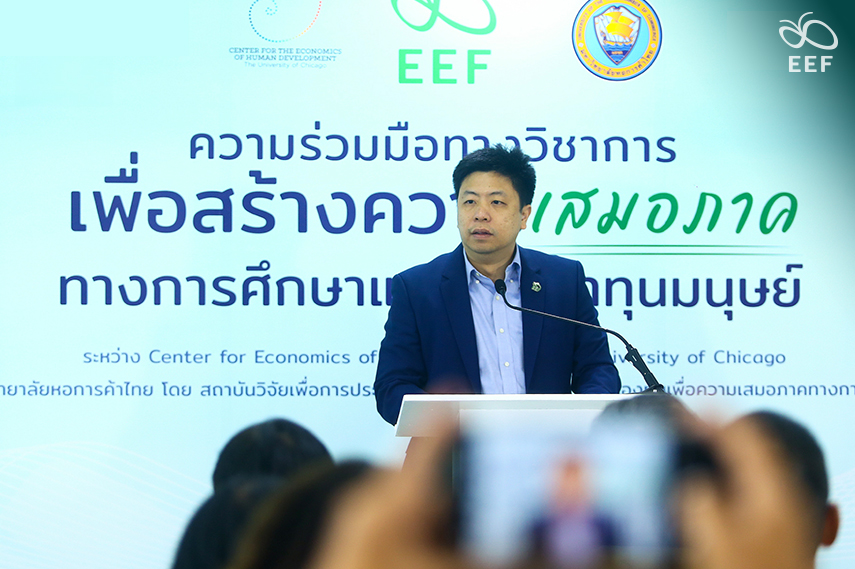
Primary research findings have corroborated the success of specific sample groups — globally in countries such as the United States and China and locally in Thailand. The “Perry Preschool Project” in the United States exemplifies the impact of quality early childhood development initiatives on economically disadvantaged children in communities. Starting with 3-year-old children, the program involves 2-hour-long home visits over 2 years, followed by long-term monitoring of target groups for several years. Similarly, the “China REACH Project” deploys trained individuals with caregiving skills to visit families with young children for one hour weekly, starting shortly after birth and lasting for three years. These approaches have demonstrated that participating children have greater chances of success than those who do not participate, including higher rates of high school graduation and university enrollment.
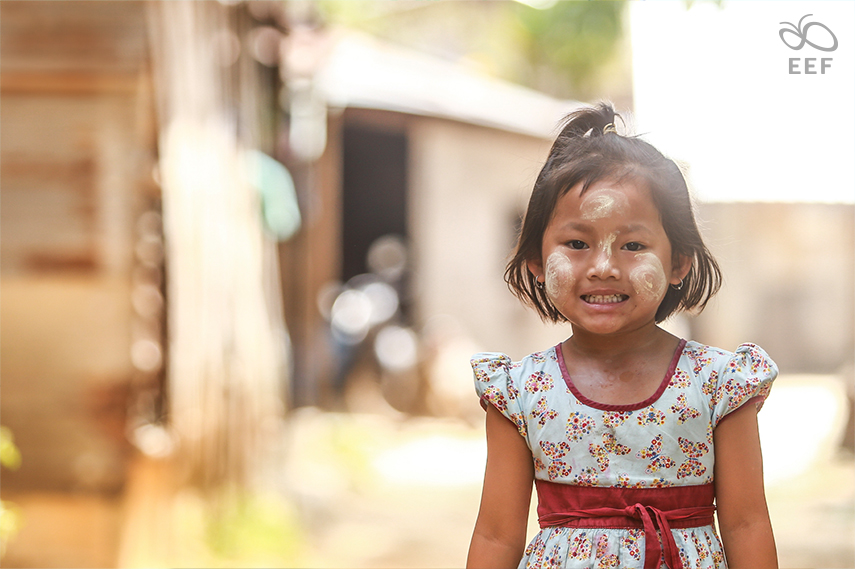
Likewise, in Thailand, the “Reach Up” home-visiting parenting program has showcased analogous success. Children in the program exhibit significantly better skills and development compared to the control group, with each home visit markedly enhancing early childhood development. This underscores the crucial role parents and caregivers play in early childhood development. Moreover, comparing these results to the China REACH Project — an initiative stemming from the same parent project as its Thai counterpart, Jamaica Reach Up and Learn Program — which studies children starting at 11 months old from low-income families, has shed light on the fact that home visiting programs are effective tools for reducing human capital disparities, particularly when implemented with highly disadvantaged young children from an early age. Nonetheless, parents’ and caregivers’ ability to provide quality care hinges on possessing the right knowledge, attitudes, and understanding of appropriate practices. Beyond accessing health, education, and basic social services, parents and caregivers need guidance, support, and knowledge on child development and caregiving through structured parenting programs.
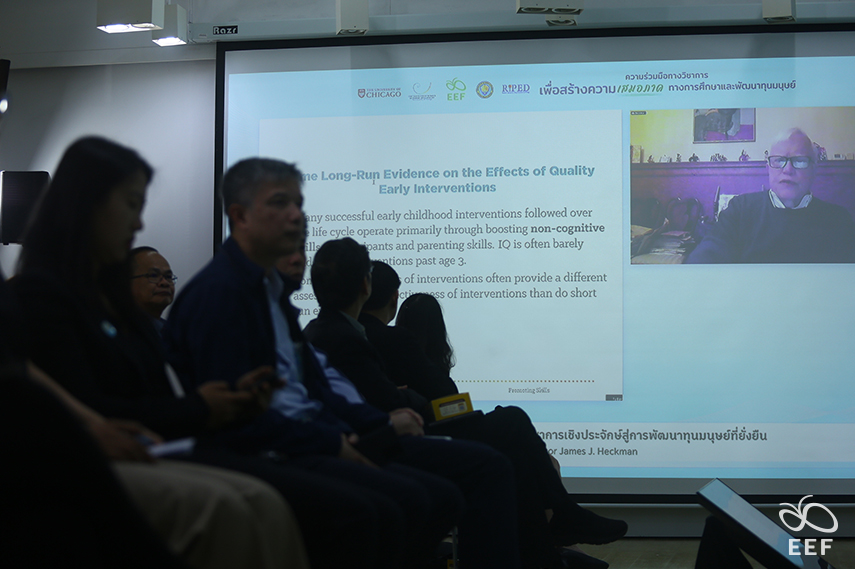
From these successful cases, it is evident that investing in early childhood caregiving not only is valuable but also represents a critical approach to developing skills and addressing social problems that affect both current and future generations. This investment has the potential to assist children raised in low-income families in achieving success in life and mitigating childhood poverty. Corroborating this finding is the statement by the Nobel Laureate economist Professor James J. Heckman that
“Early childhood care from parents plays a huge role in shaping a child’s success. Recent studies show that a child’s setbacks aren’t just about money but are heavily influenced by the quality of caregiving they receive. In fact, kids from low-income families who get good care often have better chances in life than those from wealthy families without that support. Interestingly, 80% of adult social problems trace back to early childhood experiences before age five. So, spotting at-risk kids early on and encouraging good caregiving to boost their skills and positive behaviors can really help prevent these issues.”
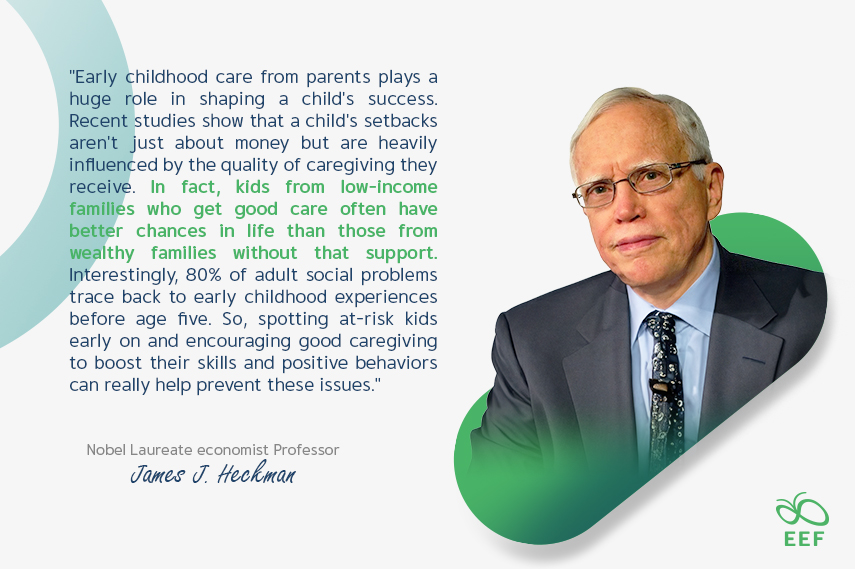
The “Reach Up” program prioritizes positive parenting principles, with a particular focus on early childhood psychosocial stimulation and positive mother-child interactions through conversing, labeling objects and actions, and playing. These activities have been proven to significantly promote child development. Field experiments have shown that effective parenting programs often involve activities that provide positive reinforcement for both children and parents and emphasize demonstration. Home visitors not only model activities with children but also encourage and advise parents, demonstrating the power of positive reinforcement and interactive engagement. The study, involving 494 families across six regions in Thailand, included a total of 15,785 home visits, averaging 32 visits per family. These visits were conducted by 119 home visitors, primarily early childhood educators (64%), health volunteers (28%), and community volunteers (8%).
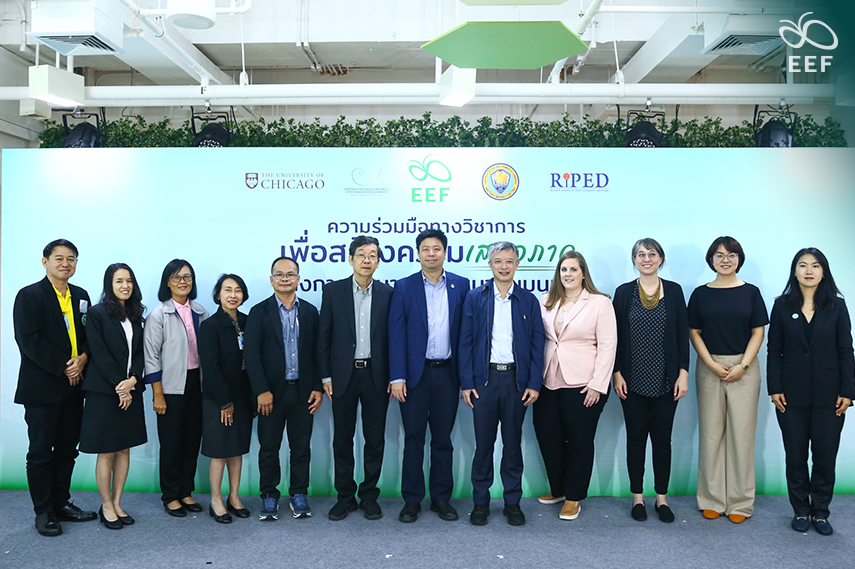
This context has established the groundwork for a transformative five-year collaboration between the Equitable Education Fund (EEF) Thailand, the University of the Thai Chamber of Commerce (UTCC), and the Center for Economics of Human Development at the University of Chicago, powered by Nobel Laureate economist Professor James J. Heckman. Together, these organizations will harness their extensive research expertise, knowledge, and innovative approaches to foster the development of Thai children, who are born in declining numbers each year. Central to this collaboration is the implementation of essential caregiving support mechanisms for families in need — a mission perfectly encapsulated by the EEF, which aims to reduce education inequality through research, collaboration, and support for children, youth, and adults in need. This initiative aims to equip stakeholders with effective tools and guidelines for early childhood development, empowering Thailand with comprehensive policy solutions that advance human capital development swiftly and effectively, truly from cradle to career. By focusing on comprehensive policy solutions, the collaboration seeks to empower Thai families with the knowledge and resources necessary to nurture their children’s potential from an early age, ensuring they are well-prepared to contribute meaningfully to Thailand’s future.

